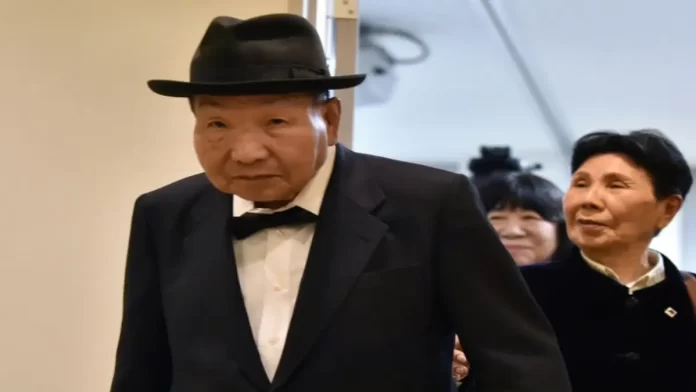Japanese prosecutors have once again requested the death penalty in the ongoing retrial of Iwao Hakamada, a former boxer who spent a record 46 years on death row before his release in 2014, according to local media reports.
Hakamada, now 88 years old, was convicted in 1968 for the robbery and murder of his boss, the boss’s wife, and their two teenage children. Despite his release in 2014 and the subsequent order for a retrial due to possible evidence tampering, prosecutors argue that Hakamada’s guilt can be proven “beyond reasonable doubt.”
Defence lawyers are vehemently seeking Hakamada’s acquittal in what has become a highly publicized case in Japan. The retrial, which commenced last year in Shizuoka, is expected to conclude with the court announcing its verdict in the coming months.
Hakamada’s prolonged incarceration, largely spent in solitary confinement under the constant threat of execution, has taken a toll on his mental health, according to his supporters. His sister, Hideko, 91, has tirelessly campaigned for a review of his case, while national lawmakers formed a special group to offer support.
The legal battle surrounding Hakamada’s case has been protracted and complex. Despite a district court in Shizuoka granting a retrial in 2014 and issuing a stay on his incarceration and death penalty, Tokyo’s High Court overturned this ruling four years later. However, in 2020, the Supreme Court ordered the High Court to reconsider its decision, leading to the retrial ordered last year.
Hakamada’s supporters argue that key evidence used to convict him, including blood-stained clothes, is questionable. The clothes, which emerged over a year after the crime, were deemed ill-fitting and the bloodstains were considered too vivid given the passage of time.
Hakamada’s case highlights Japan’s controversial retention of capital punishment, which enjoys broad public support despite criticism from human rights groups. With just nine percent of Japanese citizens in favor of abolishing the death penalty, Hakamada’s retrial carries significant implications for the country’s legal system and its approach to justice.



